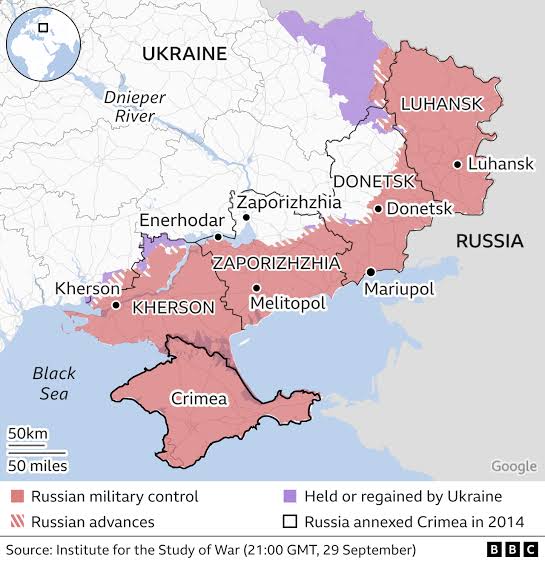Nigeria has joined the majority of the countries of the world to condemn the Russian annexation of Ukrainian territories.
In a vote at the UN General Assembly recently, Nigeria joined 142 other countries including the US, UK and Germany to condemn the annexation.
Nigeria is one of the 143 countries that voted in favour of the resolution condemning Russia’s annexation of about 15 per cent of Ukraine’s territory after a referendum condemned as illegal by many countries in the world.
However, about 18 African countries abstained from voting, indicating that Russian influence in Africa is still high.
READ MORE: 75-Year-Old Saleh Kebzabo Appointed as Chad’s New Prime Minister
Countries that abstained include the Central African Republic, Ethiopia, Eritrea, Algeria, Zimbabwe, South Africa, South Sudan, Sudan, Congo, and Guinea.
Others are Mali, Lesotho, Mozambique, Namibia, Uganda, Tanzania, Eswatini, and Togo.
China and India, two Russian allies that have refused to condemn Russia’s actions in Ukraine, also abstained from voting, joining 15 other non-African countries that abstained.
A total of 143 Member States voted in favour, with five voting against, and 35 abstentions. The countries who voted against were Belarus, the Democratic People’s Republic of Korea, Nicaragua, Russia and Syria.
The UN, however, passed the resolution calling on countries not to recognise the four regions of Ukraine which Russia has claimed. The UN also demanded that Moscow should reverse course on its “attempted illegal annexation”.
Russia in September held a referendum in Eastern Ukraine where it claimed that the peoples of Donetsk, Luhansk, Zaporizhia and Kherson had voted to become part of Russia.
President Vladimir Putin of Russia in an elaborate signing ceremony announced the four regions as officially part of Russia, stating that any attack or attempt to reclaim them will be an attack on Russia.
Russia had initially proposed that the voting be done in secret but was countered by Albania who argued that it would establish a “dangerous precedent” if such a substantive issue of peace and security was voted on in secret.




